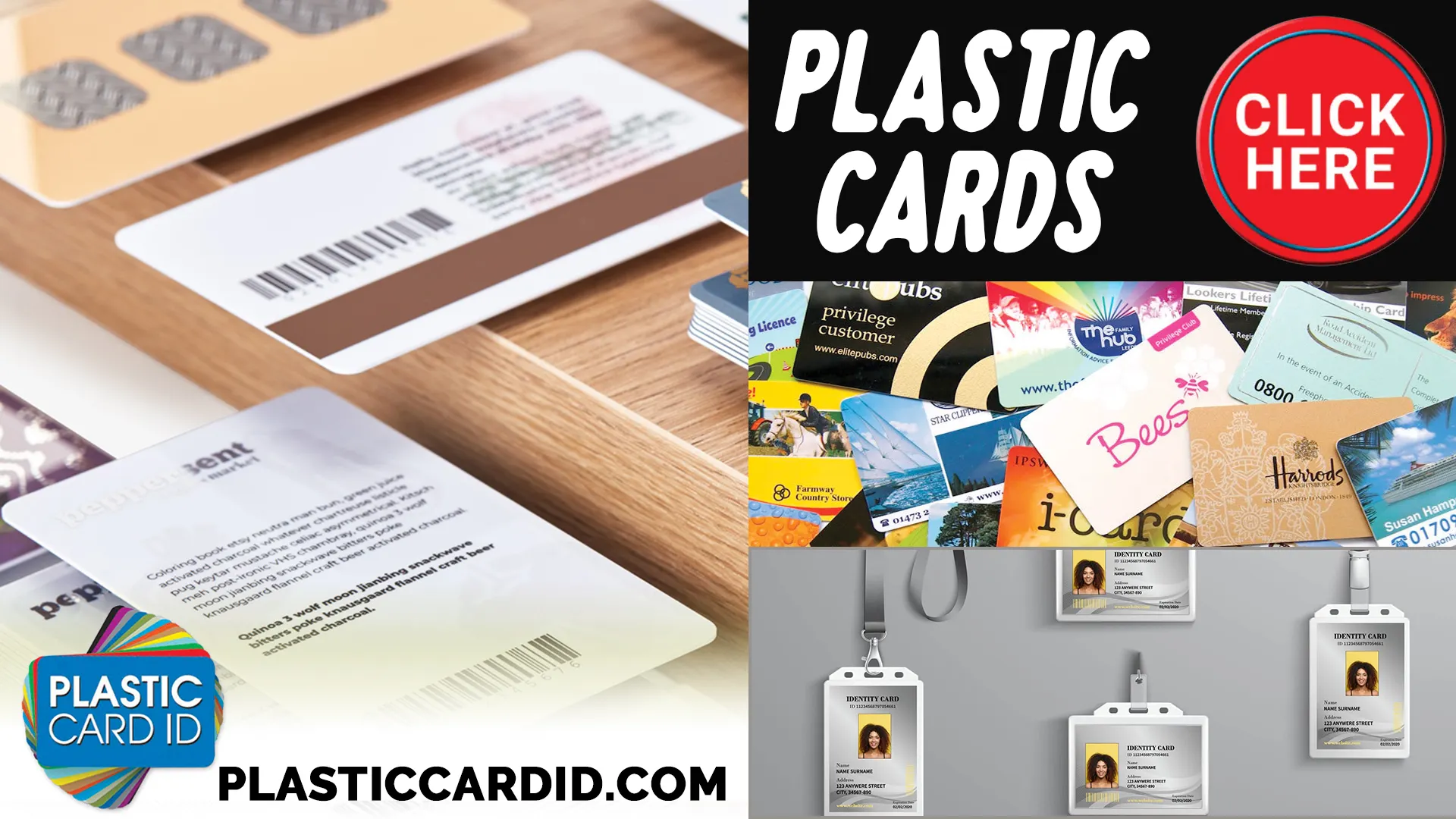Understanding PVC Cards: Pros Cons and Key Considerations
Table of Contents []
- PVC Cards Pros Cons
- Understanding PVC Card Materials
- The Impact of Market Trends on Material Choice
- Longevity and Durability of PVC Cards
- Tackling the Recycling Challenge of PVC Cards
- Cost-Effectiveness of PVC Card Production
- Meeting Customer Expectations with Sustainable Practices
- Call to Action: Making the Sustainable Choice
PVC Cards Pros Cons
With a keen eye on the evolving market trends and a commitment to environmental responsibility, Plastic Card ID engages in a critical evaluation of the use of PVC card materials in the production of their products. As a national provider that can easily be reached for new orders or inquiries at 800.835.7919 , Plastic Card ID is dedicated to offering solutions that not only meet the needs of their customers but also contribute positively to the wellbeing of our planet. This deep dive into the advantages and disadvantages of PVC cards reflects PCID 's dedication to informed decision-making and transparent communication with their clients.
Understanding PVC Card Materials
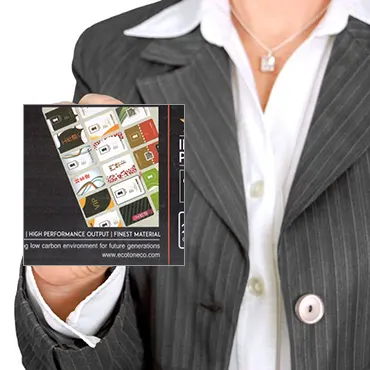
PVC, or polyvinyl chloride, is a type of plastic widely used in various industries due to its durability and versatility. In the realm of card production, PVC has been a staple material for decades, favored for its resilience and adaptability to various printing techniques. As a robust material, PVC cards can withstand regular handling, which is essential for cards that are used frequently, such as credit cards, identification badges, and membership cards.
However, the conversation about materials is no longer just about functionality. It's also about sustainability and the environmental impact of production and disposal. PCID recognizes that choosing the right materials is crucial in maintaining both quality products and a responsible environmental footprint.
PVC's toughness also means it has a long life cycle, potentially reducing the need for frequent replacements. But the flip side is that this durability poses challenges when it comes to disposal and recycling. PVC cards are not biodegradable and can release harmful chemicals if not disposed of correctly.
The Benefits of PVC Cards
When it comes to the benefits of PVC materials in card production, there are several key points to consider. PVC cards have proven their worth in the market, offering several features that are hard to match with alternative materials:
Firstly, PVC's strength ensures cards are long-lasting and resistant to bending or snapping. This durability is paramount in daily use items such as bank cards or ID badges.
Concerns About PVC Use
Despite the advantages, concerns surrounding PVC's environmental impact are impossible to ignore. PVC production involves the use of chlorine, which can generate hazardous pollutants. Additionally, during the lifecycle of a PVC card, if not properly recycled, it can lead to significant environmental harm due to its non-biodegradable nature.
Hence, the conversation at PCID isn't just about what works best in the short term, but what aligns with the company's long-term commitment to ecological sustainability.
Alternative Materials for Cards
As part of our commitment to innovation, Plastic Card ID is exploring alternative materials that could potentially replace PVC without sacrificing the quality and durability our customers have come to expect. Options include biodegradable plastics, and materials derived from renewable resources.
These alternatives are not just better for the environment; they are also in line with market trends that favor sustainable products.
The Impact of Market Trends on Material Choice
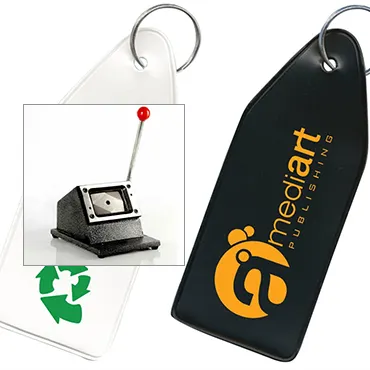
Market trends play a significant role in material selection for card production. With consumers becoming increasingly environmentally conscious, there is a visible shift toward products that minimize ecological footprints. This shift impacts not only customer preferences but also regulatory landscapes, as governments begin to impose stricter regulations on the use of plastics.
PCID keeps a close watch on these trends and understands that adhering to them is not only about meeting consumer demands but also about future-proofing the business. As sustainability becomes more than a buzzword, it becomes a significant differentiator in the marketplace.
By aligning product offerings with market trends, Plastic Card ID shows its commitment to innovation and customer engagement, demonstrating that they listen and respond to the changing needs and values of their clientele.
Customer Preferences for Sustainable Products
Customers today are more knowledgeable and concerned about the environmental impact of their purchases. This shift in consumer mindset is pushing companies to rethink their material choices and product designs.
At Plastic Card ID , we understand that adopting more sustainable practices is not just good for the planet; it's what our customers expect and appreciate.
Regulation Changes and Compliance
Complying with environmental regulations is not only about adhering to the law but also demonstrating corporate responsibility. As regulations tighten, the materials we use in our products must meet both current and future standards.
Adopting environmentally friendly materials now prepares PCID for a smoother transition as new regulations take effect, ensuring compliance and continuous service to our customers.
Staying Ahead of the Competition
Being ahead of the curve in terms of sustainability can set Plastic Card ID apart from competitors. Our proactive stance on environmental considerations positions us as a leader in the industry.
By making informed choices about materials, we not only meet customer expectations but exceed them, offering innovative products that resonate with their values.
Longevity and Durability of PVC Cards
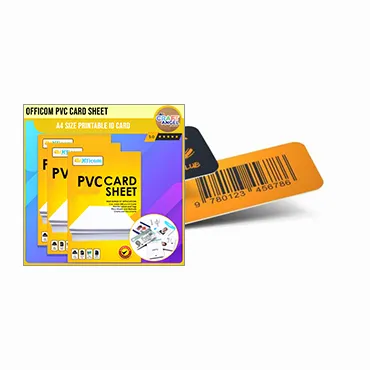
One of the main reasons PVC is a popular choice for cards is because of its durability. PVC cards are hard to tear and can resist damage from everyday wear and tear much better than other materials. This makes them ideal for cards that are used daily, like debit cards and driver's licenses.
The longevity of PVC cards means that they don't need to be replaced often, which is more convenient for users and can also help reduce waste. However, because they last so long, it's crucial to think about what happens to these cards at the end of their lifecycle.
Disposal is a challenge with PVC, as it often ends up in landfills where it does not decompose. This is a major factor that PCID considers when aligning our product offerings with both market trends and environmental considerations.
The Sturdiness of PVC Material
The sturdiness of PVC is unmatched when it comes to producing high-quality, reliable cards that endure the test of time. This robustness is essential for the functionality and longevity of frequently used cards.
However, Plastic Card ID is also exploring biodegradable PVC alternatives that provide the same level of durability without the environmental detriment.
Frequency of Card Replacement
The less often cards need to be replaced, the better it is for both the customer and the environment. This is a significant advantage of PVC cards, as their durability translates into a lower turnover rate.
However, PCID is aware that the industry must balance this benefit with the necessity of sustainable disposal methods.
Concerns at End-of-Life for PVC Cards
PVC's persistence in the environment at the end of its life is a matter of concern. Disposal and recycling of PVC cards can be complicated, leading to potential environmental hazards if not managed correctly.
As a forward-thinking company, Plastic Card ID is actively seeking ways to mitigate these concerns by either investing in recyclable PVC technologies or sourcing alternative materials that offer a more sustainable end-of-life scenario.
Tackling the Recycling Challenge of PVC Cards
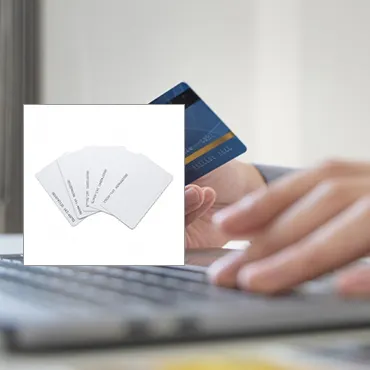
The complexity of recycling PVC cards cannot be underestimated. The cards often contain a combination of materials, such as magnetic stripes or RFID chips, making recycling a multicloud challenge. Moreover, the infrastructure for recycling PVC cards is not as widespread or efficient as it is for other materials, like paper.
Acknowledging these challenges, PCID is looking into programs and partnerships with recycling firms to ensure that PVC cards can be responsibly recycled. This reduces environmental harm and resonates with our customers' values.
On top of that, educating customers about the importance of proper disposal and the options available for recycling their cards is part of Plastic Card ID 's broader commitment to sustainability.
Complexity of PVC Recycling
The recycling of PVC cards is a complex process due to the different materials used in their construction. Nevertheless, Plastic Card ID is dedicated to finding solutions that make recycling more accessible and effective.
Implementing strategies to streamline the disposal process, we actively work towards a future where recycling PVC cards is a norm rather than an exception.
Educational Efforts for Proper Disposal
Knowledge is power, and by informing our customers about how to properly dispose of their PVC cards, PCID empowers them to make environmentally conscious choices.
Through educational materials and support, we help ensure that our products don't harm the environment after their useful life has ended.
Partnerships with Recycling Firms
Collaborating with established recycling firms allows Plastic Card ID to contribute to a more sustainable PVC card life cycle. These partnerships enhance the ability to handle end-of-life card materials responsibly.
By choosing to work with recycling experts, we make sure that PVC cards are disposed of in a way that minimizes their environmental impact.
Cost-Effectiveness of PVC Card Production
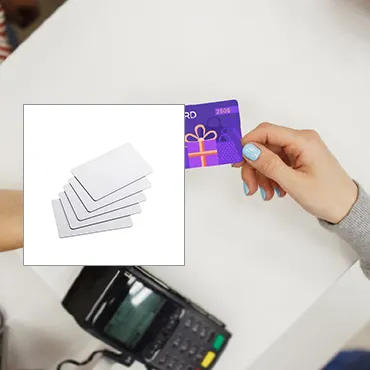
One of the reasons PVC has been the go-to material for card manufacturing is because of its cost-effectiveness. The production of PVC cards is a relatively inexpensive process, offering a high-quality product at a competitive price. This affordability is reflected in the price point for consumers, making PVC cards an accessible choice for businesses and individuals alike.
However, there is a growing recognition at PCID that the true cost of products cannot be measured solely in terms of immediate financial outlay; long-term environmental costs must also be taken into account. While upfront costs are lower with PVC, the environmental toll may be higher, leading to hidden costs for both our planet and, potentially, for the business in the long run.
As such, Plastic Card ID is considering not only the production costs but also the overall life-cycle costs of the materials used in our card offerings. This holistic approach ensures that cost-effectiveness is achieved without compromising our environmental standards.
Affordability for Businesses and Consumers
Providing an affordable product is a key tenet of our business model. PVC cards offer a budget-friendly option without compromising on quality, which is why they remain popular.
However, we are aware of the shifting landscape and are examining other materials that might offer similar benefits without the environmental consequences.
Hidden Environmental Costs
The conversation about the cost of PVC cards extends beyond the price tag. Environmental costs are a consideration that PCID takes seriously as we look to the future of our product offerings.
Factoring in the ecological implications of our materials, we are paving the way for a more sustainable and cost-effective future.
Life-Cycle Costs of Card Materials
By evaluating the life-cycle costs of card materials, Plastic Card ID makes informed decisions that reflect not only the company's values but also the increasing demands of our discerning customers.
This analysis helps us to balance cost-efficiency with sustainability, ensuring that we don't compromise our commitment to the environment.
Meeting Customer Expectations with Sustainable Practices
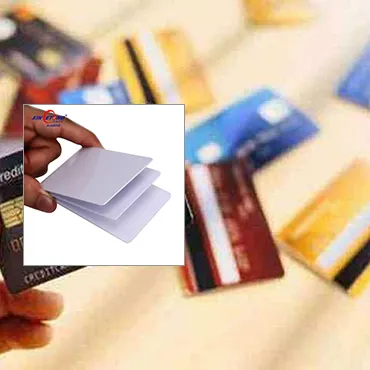
In today's market, simply delivering a product isn't enough. Customers expect and demand responsible corporate behavior, particularly regarding environmental issues. PCID understands that our product offerings must align with these expectations if we are to retain trust and continue to build our customer base.
The move towards sustainable practices is not just an ethical choice; it's a strategic one. By prioritizing the environment, Plastic Card ID demonstrates leadership and commitment to the values that are increasingly important to consumers around the world.
Our products are a reflection of our dedication to both quality and sustainability, and it's through this lens that we approach the conversation about PVC card materials. We believe that aligning our practices with customer expectations is not only the right thing to do but also essential for long-term success.
Corporate Responsibility and Trust
By integrating corporate responsibility into our mission, Plastic Card ID fosters trust and loyalty among our customers. We recognize that how we operate and the materials we choose directly reflect on our brand.
Upholding high environmental standards is a core aspect of building a reputable, trustworthy company.
Strategic Sustainability
Adopting sustainable practices isn't just about responding to customer demand; it's a strategic move that positions PCID for future success. Sustainability is a long-term investment in the future of our business and our planet.
By being early adopters of more sustainable materials, we not only adapt to current market demands but also anticipate future trends and regulations, staying ahead in a competitive landscape.
Product Quality and Environmental Commitment
There's no need to choose between quality and environmental responsibility. At Plastic Card ID , we're dedicated to providing the best of both worlds to our customers.
Our commitment to sustainable card materials demonstrates our respect for both our customers' needs and the health of our planet.
Call to Action: Making the Sustainable Choice
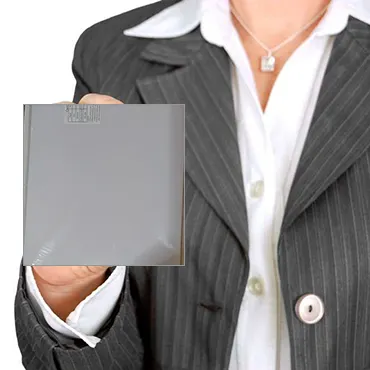
As the conversation about PVC card materials progresses, it's clear that the decisions we make today will shape not only our business but also our world for years to come. PCID invites our customers to take part in this important initiative by choosing our products and supporting our journey toward sustainability.
We understand the importance of aligning our products with both market trends and environmental considerations, and we're committed to offering solutions that meet these standards. Together, we can make a difference.
For any questions, to make new orders, or for more information, don't hesitate to reach out to us at 800.835.7919 . Choose Plastic Card ID for a future where quality, affordability, and environmental responsibility go hand in hand.
Join the Sustainable Movement
Become a part of the solution by supporting PCID 's sustainable products. Your choices have the power to impact the market and the environment positively.
With your help, we can transform industry standards and make sustainable practices the norm.
Questions? We're Here for You
If you have any questions or need assistance, we're just a call away. Reach out to us at 800.835.7919 for personalized service and support.
Your satisfaction and the planet's well-being are our top priorities.
Place Your Order Today
Are you ready to be a part of the change? Place your order for sustainable card materials with Plastic Card ID and join the movement toward a better future.
Your business can make a significant impact - start by choosing products that align with your values. Contact us at 800.835.7919 to get started.
Previous Page

